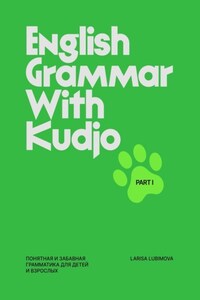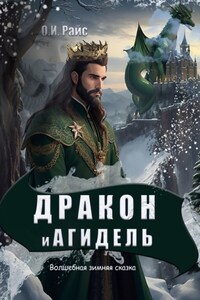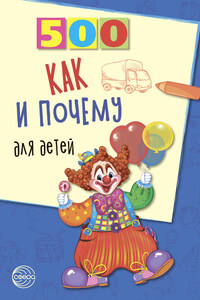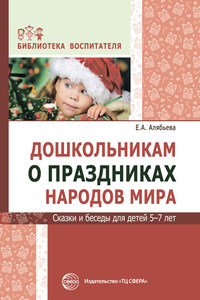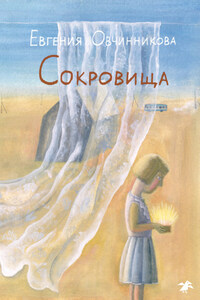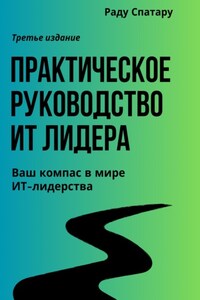Итак, мы продолжаем серию книг по английской грамматике. Я очень рада, что у нас уже есть настоящие фанаты и надеюсь, что с этой частью их появится еще больше. В чем разница между первой книгой и этой?
Во-первых, уровень вырос с pre-intermediate до intermediate. Во-вторых, количество русского языка сократилось до минимума, он остался только в рассказах на перевод.
В-третьих, разбираем более каверзные аспекты грамматики, используем более сложную и интересную лексику и создаем рассказы с более закрученными сюжетами. Напомню, что принцип обучения по моим книгам состоит в том, чтобы через простые грамматические задания на додумывание и изменение предложений переходить на создание рассказов с необычным сюжетом и непредсказуемым поворотом событий. Так, например, в этой книге вы узнаете много нового о необычных сверхъестественных особенностях животных и попытаетесь разгадать тайну собаки с пазлами. Так постепенно вы начинаете не просто хорошо разбираться в грамматике, но и думать на английском языке.
Follow Kudjo
EXERCISE 1
Do you remember the story at the end of the first part of the book? Yes, you are right- the story about Kudjo and a mysterious egg.
Let’s continue.
Translate the continuation of the story:
Куджо осторожно заглянул в сарай. Он увидел на полу одеяло и разбитое яйцо. Он медленно подошел к скорлупе и вдруг услышал тихое шипение. Звук шел из большого старого холодильника, где Куджо обычно хранил свою еду. Он очень медленно открыл дверцу и увидел маленького зеленого дракончика, которые сидел на полке и доедал собачий корм. Когда дракончик увидел Куджо, он сразу перестал есть и шипеть, облизнулся и вдруг закричал: «Мамочка!»
Так у Куджо появился собственный питомец.
EXERCISE 2
Put the verbs in brackets into the correct tense form:
1 While Kudjo /stare/ at the dragon, he suddenly /jump/ out of the fridge and /hug/ Kudjo.
2 Kudjo never /want/ to have a pet dragon.
3 Kudjo never /see/ a real dragon before that morning.
4 Kudjo thinks that dragons /live/ on our planet a long time ago.
5 Kudjo /buy/ a leash for his new pet tomorrow.
EXERCISE 3
Finish the sentences:
1 When Kudjo saw what had happened to his food, he …..
2 While the dragon was sleeping in Kudjo’s bed …..
3 Kudjo has never thought that …..
4 Kudjo woke up and saw …..
5 Next morning Kudjo and the dragon are going to …..
EXERCISE 4
Find the proper verb and put it into the correct tense form: hop, eat, grow, jump, love, sleep, not hear
1 The dragon already ***** all Kudjo’s food.
2 Kudjo and the dragon ***** and ***** strange sounds in the barn.
3 The dragon ***** twice by the end of the month.
4 The dragon ***** and *****in the garden when the neighbour came in.
5 Kudjo ***** the dragon since the first time he saw him.
EXERCISE 5
Put the missing word:
1 Kudjo has thought a lot about ***** for his pet.
2 The dragon has one irritating habit – he ***** very loudly and Kudjo can’t sleep next to him.
3 They are ***** dragon-flies on the lawn now.
4 The dragon has no ***** and so he can’t fly.
5 They were having lunch when suddenly the dragon realised that he didn’t like ***** at all.
EXERCISE 6
Choose the correct option:
1 Kudjo ***** up with the name for his pet – Dradjo.
a has just come
b is just coming
c had just come
2 Dradjo and Kudjo ***** Monopoly when Chilly came to see them.
a are playing
b played
c were playing
3 Dradjo ***** new commands by the age of three months.
a has learnt
b had learnt
c learns
4 Dradjo and Kudjo ***** a mind-blowing party for all their neighbors next Sunday.
a are going to throw
b will throw
c threw
5 Nobody ***** how Dradjo’s egg appeared in the cave.
a knowed
b know
c knows
EXERCISE 7
Translate the continuation of the story:
К концу первого месяца Куджо научил своего питомца многим вещам.
«Не называй меня мамочкой.»
«Не клади лапы на стол.»
«Не выпускай пламя из пасти.»
«Не облизывай гостей.»
«Не храпи.»
Это было трудно, но Драджо был готов делать все, что скажет его хозяин, тем более, если у него в лапе была какая-нибудь вкусняшка.
Вчера Куджо начал учить своего питомца собачьему языку, а сегодня Драджо уже знал 100 слов!
Unit 2
The Present Perfect Continuous Tense
Настоящее совершенное длительное время
This tense is used:
• for actions which started in the past and continue up to the present.
They have been playing «catch me, Monster’ since early morning. (They’re still playing.)
• for past actions of certain duration which have visible results or effects, in the present.
– Kudjo is very tired. He has been teaching his pet all day long.
• to express irritation, anger, annoyance, explanation or criticism.
– Who has been eating my treats? (showing anger)
• to put emphasis on duration, usually with for, since or how long.
– I’ve been teaching him since yesterday.
• The form is: Subject + have / has been + verb -ing.
– Kudjo has been trying to feed his pet since the morning.
EXERCISE 1
Put the verbs in brackets into the Present Perfect Continuous:
1 Dradjo /protect/ Kudjo’s sleep since lunch.
2 Kudjo /train/ Dradjo for three months.
3 Why are you so wet? – I /run/ in the rain.
4 Kudjo and Dradjo /live/ together for a few months.
5 Drajo /learn/ Doggish since Monday.
6 They /watch/a sci-fi movie about dragons for an hour.
the question form is:
(Question word) +have/has + subject + been Ving?
How long has Kudjo been sleeping?
the negative form is: Subject + have / has + not + been + Ving.
Drajo hasn’t been calling Kudjo as Mummy since their first training.
EXERCISE 2
Find the proper verb and put it into the correct Present Perfect Continuous form: relax, do, live, wander, gnaw, eat, look for
1 What you ***** in the attic since the morning? – I’ve been ***** a mouse-trap.
2 How long you ***** this bone? – I’ve been doing it for two days.
3 I ***** since yesterday. I’m as hungry as a hunter.
4 Where you ***** all day?
5 We ***** for ages. We must recharge our batteries.
6 How long *****in this house on your own? – Since last summer.
EXERCISE 3
Kudjo has found several things that made him annoyed. Try to guess the question he is asking:
For example,
The mat is covered in bread crumbles. – Who has been eating sandwiches on my mat?!
1 The fridge is half-empty. —
2 The toy is broken. —
3 The floor is dirty. —
4 The house looks messy. —
5 There’s a lot of water on the floor in the bathroom. —
6 There is smoke coming out of the kitchen. —
The main signal words for this tense are since, for, how long, all day /week, month, year/ long.
EXERCISE 4

